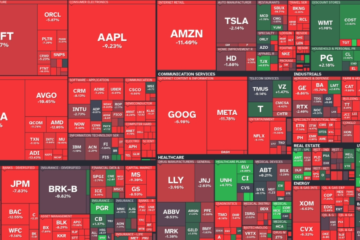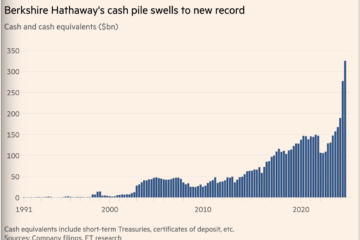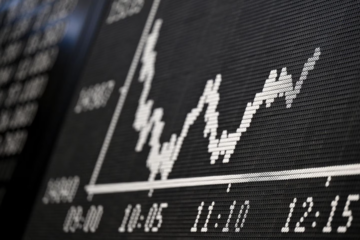Unlike most investors, we do not believe that the lack of concern in the stock market will last forever. The first difficulties for companies are on the inflation side: higher production costs due to increased raw material prices and wage increases, difficulties in finding desperately needed workers (more vacancies than job seekers in the USA), freight rates that have multiplied within a few months: This is eating into the margins of many companies. While the FED and ECB speak of temporary inflation, corporate leaders are currently speaking a different language. Many want to, or have to, pass on the increased costs to the retail consumer.
Just a few months ago, the central banks were saying that no inflation above or close to the target corridor of 2% was discernible, but if this should occur, they have the tools and will take appropriate countermeasures. Subsequently, the Fed and the ECB admitted that inflation had been underestimated, but that it was only temporary. A few days ago, Ms. Schnabel of the ECB announced that inflation was good and that it had been correctly estimated.
Some market participants are asking legitimate questions about why the Fed is buying $40 billion a month worth of mortgage securities when home prices are skyrocketing and the problem is clearly supply, not demand. What happens if the Fed is forced to raise interest rates due to permanent inflation?
A not insignificant part of the market is very highly valued, especially in the US and in sectors that have been investor´s favorites for some time.
According to an analysis by Bank of America, more money flowed into equity mutual funds and equity ETF's in the first half of 2021 than in the previous 20 years combined! Likewise, credit-financed purchases of securities have increased significantly. The US market is priced to perfection. For several months now, more call options on stocks have been bought than the underlying stocks themselves. So which is the derivative, and which the underlying?
Meanwhile, corporate insiders find themselves on the sell side. The pipeline of IPOs and SPACs is benefiting from a market seemingly willing to buy at any price. For corporate sellers, this is an almost heavenly environment. At the same time, can this also be true for buyers of these securities?
The companies within our client portfolios generally reported strong figures in recent weeks. Some even reported their best quarter on record and are providing an optimistic outlook. Inflation is a concern for many companies. However, our portfolio companies expect to be able to pass on the increased costs.
The portfolios performed well due to strong earnings and high cash generation of the companies. Valuations of our investments remain low as sales and earnings growth keep pace with share price gains.
However, two of our portfolio companies were nearing their fair value, which is why we sold one position completely and repeatedly reduced another position:
We bought Thrace Plastics for our customers about eight months ago. We realized the share price gain of 115% after the company reported good quarterly figures, but now appears to be roughly fairly valued.
North Media AS has been in our client portfolios since February 2020 (shortly before the first Corona lockdown, purchase price DKK 58) and has since raised its forecasts several times. We were able to acquire the share at a P/E ratio below five at that time. The share price gain as of today is approx. 110%. After the strong performance of the share, we had realized partial profits around DKK 120.- again and again in the last weeks and months. The P/E ratio today is around ten, and the dividend yield on our purchase price is around 10%. Although the share does not yet appear expensive, we are currently finding additions to our customer portfolios that also appear very attractive.
As the weight of the sold positions more than doubled due to price gains, we were able to use the sales to take a higher number of new positions with the original weighting of the stocks sold.
Among other things, we had bought in recent weeks:
Unieuro SpA, an Italian electronics retailer, reported very good full-year results, almost 10% above pre-pandemic levels.
UniEuro has more than doubled its sales from EUR 1.2 billion in 2015 to over EUR 2.8 billion today. Profit increased from EUR 3.- million to over EUR 50.- million in the same period. The company expects to be able to increase its sales by 5% to 6% per year in the coming years. The company distributes half of its profit as a dividend. The dividend yield is currently around 6%.
The consumer electronics market in Italy is highly fragmented. There are many smaller companies in this sector. UniEuro uses its high free cash flows to buy up competitors in good locations.
Until recently, the company had net debt, which has now turned into a net cash position. The company's high free cash flow is the reason for our investment. The company could be bought at less than 9 times normalized annual earnings. In addition, French telecommunications company Iliad recently acquired 12% of UniEuro's share capital. Iliad wants to further accelerate UniEuro's growth and participate in this development with its investment. It will also be exciting to see what the billionaire entrepreneur behind Iliad plans to do with his investment.
Ambra S.A. is a wine producer and distributor from Poland, which has been growing strongly for years and has excellent capital ratios. Over the last twelve years, the company has increased its dividend from PLN 0.1/share to PLN 0.95/share today. The dividend yield as of today is 3.9%. The company's largest shareholder is the German company Schloss Wachenheim, which is also listed on the stock exchange.
Despite the strong and sustained growth, the company was bought at a P/E ratio of only 12, or at less than six times EBITDA. The company generates a high return on invested capital and is defensively financed. Ambra has invested heavily in other countries such as the Czech Republic and Romania in recent years. These investments are currently paying off as very high growth is coming from these two markets. With the good balance sheet ratios and the high free cash flow, the company is in a position to invest further in profitable and sustainable growth.
Kitron ASA is based in Norway and produces just about everything the modern world needs:
Technical equipment for electrification, automation, infrastructure, recycling, defense, medical technology, wireless transmissions, sensors and battery technology for electric vehicles. The order backlog is at record levels.
If the company's expectations are met, sales will continue to grow strongly: to NOK 6.- billion by 2025. Currently, sales are NOK 4.- billion. The dividend yield is currently 4%. At the current share price level, the free cash flow yield is an attractive 7% with an upward trend. The valuation is favorable. The equity ratio is a solid 33%. The company's sales have increased by 8% per year over the past five years, while profits have increased by 12% per year.
Please note that the above text does not constitute investment advice. Equity investments involve risks. Please consult your financial advisor for information on opportunities and risks before making any purchase.
Björn Heissenberger
heissenberger@h-vv.ch


